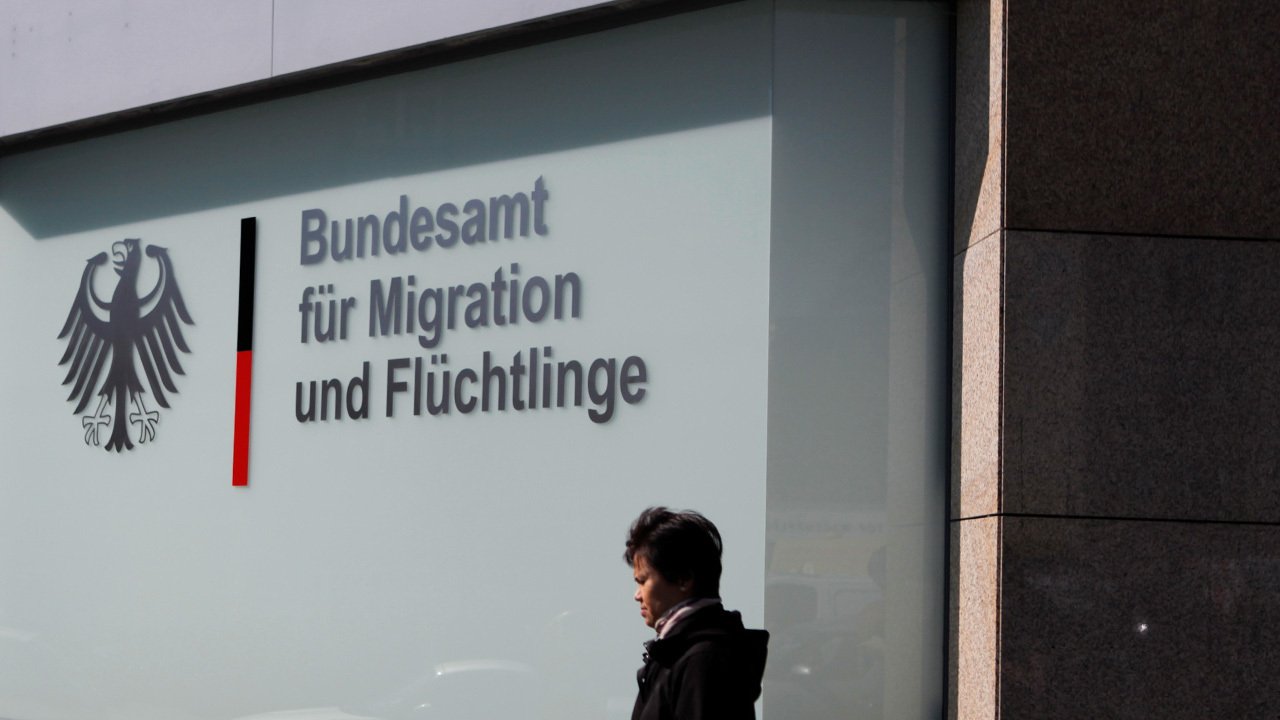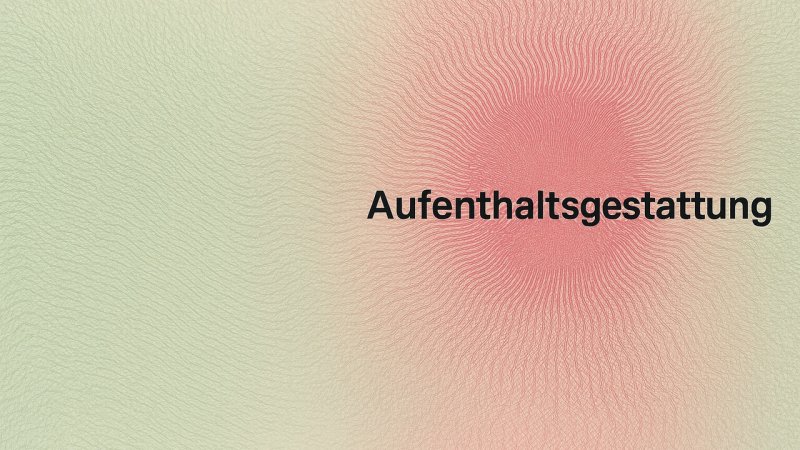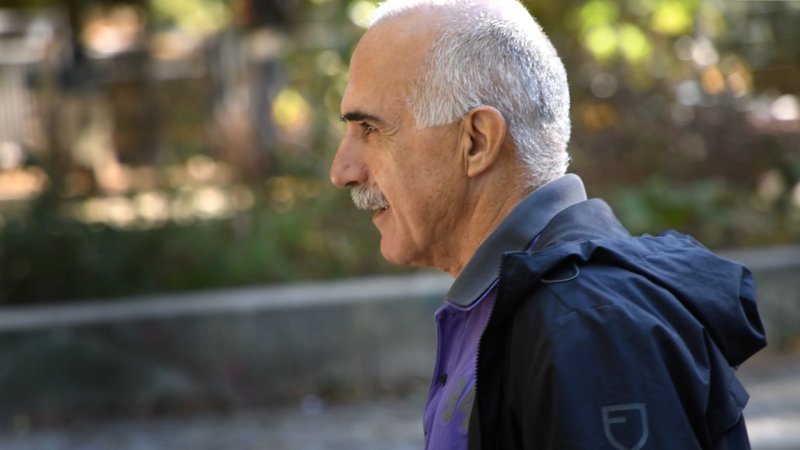Asylum procedure

How can I apply for asylum?
How do I apply for asylum?
Every person who flees to Germany and seeks asylum must submit an asylum application and register as an asylum seeker. You can find out more about it in our chapter ‘Registration as an asylum seeker’.
Once you have submitted your asylum application and registered, the asylum procedure can begin. The asylum procedure determines whether a person will be granted asylum in Germany or not. The asylum procedure is regulated by the Asylum Act and consists of several steps:
1. Asylum application
2. Dublin check
3. Hearing (interview)
4. Decision
Please note: Your identity will be verified during the asylum procedure. If you are unable to present a passport, the BAMF may access your mobile phone data and compare your photo with images on the internet in order to verify your identity. However, this is only legal if there is no less intrusive way of verifying your identity and nationality.
Good to know: Initial reception centres usually offer free counselling on the asylum procedure. This service will help you to better understand the asylum procedure and prepare for it. You can ask the social workers at your accommodation about it.
NEW: The EU is striving for a uniform asylum system that provides for further tightening of asylum rules. This will also lead to changes in the asylum procedure. Germany must implement the rules by June 2026. It is not yet clear how exactly the regulations will be implemented in detail, so we cannot provide any precise information on this at this stage. All information provided here is in accordance with current laws and regulations.
How does the asylum process work?
After registration, the asylum procedure can begin, and the first step in the asylum procedure is submitting the asylum application. You can apply for asylum at the Federal Office for Migration and Refugees (BAMF). You will be provided with an appointment either during registration or later per post.
An interpreter will also attend this appointment. You will be asked about your identity, country of origin, your city, your family, your school or profession, your religion and the route you took to reach Germany. If you have any documents from your home country, you can show them to the interviewer. In principle, the BAMF will keep these documents until the end of your asylum procedure. At this stage, you do not need to explain the reasons for your flight- you will be asked about it later at the hearing. In case such data is not available, You will be photographed, and your fingerprints will be recorded while applying for asylum. The BAMF employee will also inform you about your rights and obligations during the asylum procedure. If there is something you do not understand, you always have the right to ask for clarification.
If you have experienced sexual violence or persecution based on your sexual or gender identity, you have the right to request a special hearing officer who is familiar with these issues ("Sonderanhörer*in für geschlechtsspezifische Gewalt").
You can also ask for a male or female interviewer for the hearing, but you need to communicate your preference when applying for asylum. You can also let them know what language your interpreter must speak during the hearing and whether you prefer them to be male or female.
After the hearing, you will be issued a so-called "Aufenthaltsgestattung", which is, in fact, a temporary residence permit. This document is similar to the proof of arrival ("Ankunftsnachweis") which you have been issued after registration. This temporary residence permit shows all the relevant authorities that you may stay in Germany as your asylum application is ongoing. You need to always carry your "Aufenthaltsgestattung". You can find out what rights and obligations you have with a residence permit on the page ‘Residence permit’.
Please note: If you are in a hospital or prison or in case you are still a minor and alone in Germany, you can also apply for asylum in writing. It's best to seek advice from a social worker or a counselling centre in advance. The best is to seek help from social workers at your accommodation centre or find a counselling centre on the website of Pro Asyl.
Even if you plan to submit your asylum application personally, it often makes sense to seek help from a counselling centre in advance.
After you apply for asylum, the BAMF will check whether your asylum procedure can take place in Germany or you should apply (or have already applied) for asylum in another European country or Norway, Iceland, Liechtenstein, or Switzerland.
If you, e.g. have been fingerprinted or recognised as an individual entitled to asylum in another European country, that’s the country responsible for you. That may lead to Germany sending you back there. This arrangement is called the Dublin III regulation. To this end, you will have a personal interview with the BAMF, during which you will be informed about the consequences of the Dublin assessment. The BAMF will also ask you whether there are any reasons why you cannot return to the other European country.
You can learn more about it under "Dublin Procedure".
After it is verified that Germany is indeed the European country responsible for your asylum case, you will be sent an invitation for your hearing session. However, it is also possible that you will be invited to an interview before the Dublin assessment has been completed.
The hearing (interview) is the most crucial part of your asylum procedure. You often have to wait several months, sometimes even more than a year for the invitation. Do not miss your hearing appointment. If you are ill that day, you must report it to the BAMF immediately in writing and enclose a medical certificate. You must also provide evidence of other important reasons.
The Federal Office decides on the asylum application on the basis of a personal interview and a thorough examination of documents and evidence. The individual's personal circumstances are decisive in this regard.
At the hearing, a BAMF staff member and an interpreter will be present. A representative of the United Nations High Commissioner for Refugees (UNHCR) may also attend.
You can ask your lawyer or a friend to come along if you do not want to go alone. However, the person who accompanies you must not be an asylum seeker themselves, and you must register the person in advance if you plan to take someone with you. In the case of unaccompanied minors, the guardian must attend. The hearing takes place in a BAMF office.
The BAMF staff member (i.e. the interviewer) will ask you about your life in your homeland and the reason you've fled and the route you took to Germany. Above all, your reasons for fleeing your country are of extreme significance here. It is essential to explain your situation as accurately as you can. The more details you recount, the easier it is for the BAMF to discern your story. The employee writes down your account in a protocol, which you will sign later– this signed protocol form the basis for the BAMF's decision. A few days or weeks after the hearing, you or your lawyer will receive the protocol by post.
You are entitled to some specific rights during the hearing (interview), the most important ones of which are:
- The BAMF should comply with your request regarding the gender of the interviewer or interpreter if you have provided sufficient reasons for it and the BAMF has sufficient capacity. Ideally, you should explain it before the interview. However, you can also inform them during the interview if you do not feel comfortable with the individuals and are unable to speak freely.
- Language barrier: If you do not understand the interpreter or feel that he/she does not quite comprehend what you say, you can say so and ask for another interpreter.
- You will be assigned a new interpreter, but may have to postpone the appointment to another day.
- At the end of the session, the interpreter will propose to orally translate all you have stated (and the BAMF employee has written down in the minutes) for you. Make sure you accept this offer and listen carefully. If there are any mistakes or something is missing, inform the interpreter and BAMF employee immediately. You only need to sign the protocol if everything is correct.
- If you have evidence proving your persecution in your home country, prepare and submit copies of it at the hearing. The evidence can include, e.g. photos, documents, newspaper articles or medical certificates.
- Do not feel pressured to hurry in case the employee or the interpreter becomes impatient. It is essential that you tell your entire story in as much detail as necessary. You have the right to take as much time as you need.
The hearing (interview) is of great significance, so you have to prepare well beforehand. You can find sample questions that may be asked during the interview in the section ‘What questions will be asked during the hearing?’. Furthermore, on asylindeutschland.de you can find a video about the hearing session, available in 14 languages.
Please note: It may be that you have to wait a long time for your hearing despite having an appointment, so take some foods and drinks with you.
You have to be well-prepare for the hearing. Below you can find a large number of questions that you are likely to hear at your hearing. Please note that the interviewer may also ask you other additional questions.
Counselling centres and lawyers can help you prepare for the hearing. On Pro Asyl’s website you can search for a counselling centre nearby. You can find out how to search for solicitors in your area on Life Initiative[1] .
Here are the most commonly asked questions at hearing (interview)– but there may be other questions too:
Do you speak any other dialects besides the given language(s)?
Do you (or did you) hold any more nationalities?
Do you belong to a particular tribe or ethnic group?
Can you present personal identification documents such as a passport, a passport substitute or identity card?
why are you not able to show any personal identification documents?
Do you have personal identification documents such as a passport, a passport substitute or identity cards in your home country?
Can you present any other document, e.g. diplomas, birth certificate, passport or driving license?
Do you have or have you had a residence permit/visa to enter the Federal Republic of Germany or any other country?
Please tell me your last official address in your home country.
Please specify the surname, (if applicable) maiden name, first name, date and place of birth of your spouse and date and place of the marriage.
What is your spouse's address (if he /she is no longer in the home country, please mention the last address and the current address)?
Do you have children (please also name all adult children including their surname, first name, date and place of birth)?
At what address are your children currently living (if your children are no longer in their home country, please provide the last and the current address)?
Please give me the names, family names and addresses of your parents.
Do you have any siblings, grandparents, uncles or aunts living outside your home country?
Do you support your relatives economically in your home country?
What are the personal details of your paternal grandfather?
Which school (s)/university(s) did you attend?
What profession have you learned? Who was your last employer before you come to Germany?
What job do you practice in Germany?
Have you done military service?
Did you participate in demonstrations or other events against the regime in your home country?
Have you been to the Federal Republic of Germany before?
- Have you ever applied for asylum in another country?
- Have you already been granted asylum in another country?
Has any family member of yours’ in another country applied for or been granted refugee status with legal residence?
Do you object to your asylum application being examined in this country?
Please describe how and when you came to Germany. Indicate when and how you left your country of origin, which other countries you travelled through and how you entered Germany.
When have you entered the Federal Republic of Germany?
- How did you enter the Federal Republic of Germany?
Were you possibly fingerprinted and photographed by authorities in another country?
Do you have relatives in Germany?
Were you politically active in your home country?
What was the main reason you (or your husband/wife) left your village or town?
Does your partner have siblings?
What was your husband's job? Where did you earn a living?
What did your departure cost?
Where did you obtain the money for your departure?
How did you come up with the idea and why did you leave your home country?
Where does your family live in your home country?
What would you have expected in the worst case if you had stayed in your village or town?
Do you have anything essential to add to this protocol?
DE, EN, AR, TR and RU - link in your language
A few months after your hearing, you will receive a letter from the BAMF notifying you of the decision the BAMF has made regarding your asylum application. Sometimes, it takes longer until you are notified of the decision.
The decision will be explained in the letter. If necessary, it will also explain how you can appeal against it. The decision (or part of it) will also be translated and sent to everyone involved – for instance, to you as the applicant, your representative and the Immigration Office.
The BAMF can opt for one of the following decisions:
- You are recognised as a refugee or asylum seeker under the Geneva Refugee Convention, which means you will obtain a residence permit, which you need to extend every 3 years. To learn more about your rights as an individual entitled to asylum or a recognised refugee, read at handbookgermany.de.
- You are granted subsidiary protection, which means you will obtain a residence permit for 3 year. You have the right to appeal against the decision. However, this does not make sense if you do not have any family members whom you would like to bring over. You can seek advice on this matter. You can learn more about your rights as an individual entitled to subsidiary protection at handbookgermany.de.
- You are issued a national ban on deportation (“Abschiebungsverbot”) , which means you will be granted a residence permit for a year that you need to regularly extend. You can read more about this type of residence permit at handbookgermany.de. You have the right to appeal BAMF's decision- but you need to do so immediately. However, it may be advisable to retain the “Abschiebungsverbot”. You can seek advice on the matter.
- Your asylum application is rejected; i.e. the BAMF sees no reason to grant you protection in Germany. You can learn about your options in such a situation under "Rejected Asylum".
- Your asylum application will be rejected as ‘inadmissible’. This happens, among other things, if another EU country is responsible for your asylum application or if you have already been granted protection status in another European country (Dublin case). In this case, your asylum application will not be examined in terms of content, but will be rejected immediately. You can find out more about this on our ‘Dublin procedure’ page.
- Your asylum application is rejected as "Obviously unfounded"– that can happen:
- for instance, if you come from a so-called ‘safe country of origin’. You can find out more about this in the section ‘What do people from ’safe countries of origin‘ need to bear in mind during the asylum procedure?’.
- Or the BAMF believes that you did not tell the truth during your hearing, or that you came to Germany for economic reasons.
You can find out what rights you have after your asylum application has been rejected at "Rejected Asylum".
Please note: Regardless of the decision you receive, you can always seek advice. You can find a counselling centre nearby on the Pro Asyl website. You can find out how to search for solicitors in your area at Life Initiative.
An asylum procedure can also be discontinued. This is the case if
- the asylum application is withdrawn
- the applicant does not fulfil their ‘duty to cooperate’ – e.g. does not appear at appointments
- or the person concerned does not appear for a personal interview, cannot be found or has travelled to their country of origin during the asylum procedure.
Please note: To ensure that you receive your mail from the BAMF and do not miss any appointments, you must always notify the BAMF of your current address. You can use this template to do so.
In principle, the asylum procedure for people from ‘safe countries of origin’ does not differ from the asylum procedure for people from other countries. However, it is usually carried out more quickly.
The hearing (interview) is also the most important step for people from ‘safe countries of origin’. At the hearing, you explain about your persecution in your country of origin and, if available, provide evidence of it. If the Federal Office for Migration and Refugees (BAMF) considers the persecution to be proven, people from ‘safe countries of origin’ can also be granted protection status and thus a residence permit for Germany.
However, most asylum applications from persons from ‘safe countries of origin’ are rejected as ‘manifestly unfounded’(„offensichtlich unbegründet”) . This happens if the BAMF believes that you have not told the truth or thinks that you have come to Germany solely for ‘economic reasons’.
If your asylum application has been rejected as ‘manifestly unfounded’, you only have one week to file an urgent appeal with the court and challenge the decision. If you do not file an urgent appeal or if it is rejected by the court, you may be deported. You can find out more about this under ‘Asylum application rejected’.
Further information on ‘safe’ countries of origin can also be found under ‘Temporary Stay Permit’ (“Aufenthaltsgestattung[1] ”).
Link to Chapter Aufenthaltsgestattung > sub-accordion "Was gilt für Personen aus “sicheren” Herkunftsstaaten?"
If not possible yet, only link to Chapter
You can find counselling centres in your area on the ‘Local Search’ page or using the BAMF-Navi. To do so, enter your postcode or the name of your place of residence and search for ‘asylum procedure’ or ‘asylum procedure counselling. You can also take advantage of the services offered by MBE and JMD. You can also search for an counselling centre in your federal state at proasyl.de. In addition, a Refugee Council can offer you support. You can find the Refugee Council responsible for you at fluechtlingsrat.de. You can find out where to look for a solicitor at Life Initiativ[1] e.
Important
You must definitely notify the Immigration Office and the BAMF when you move to a new apartment or are transferred to another accommodation centre during your asylum procedure. If you forget to inform them about your new address, you may miss essential important appointments because you do not receive your post.
You can use this template letter to inform the BAMF of your new address.



